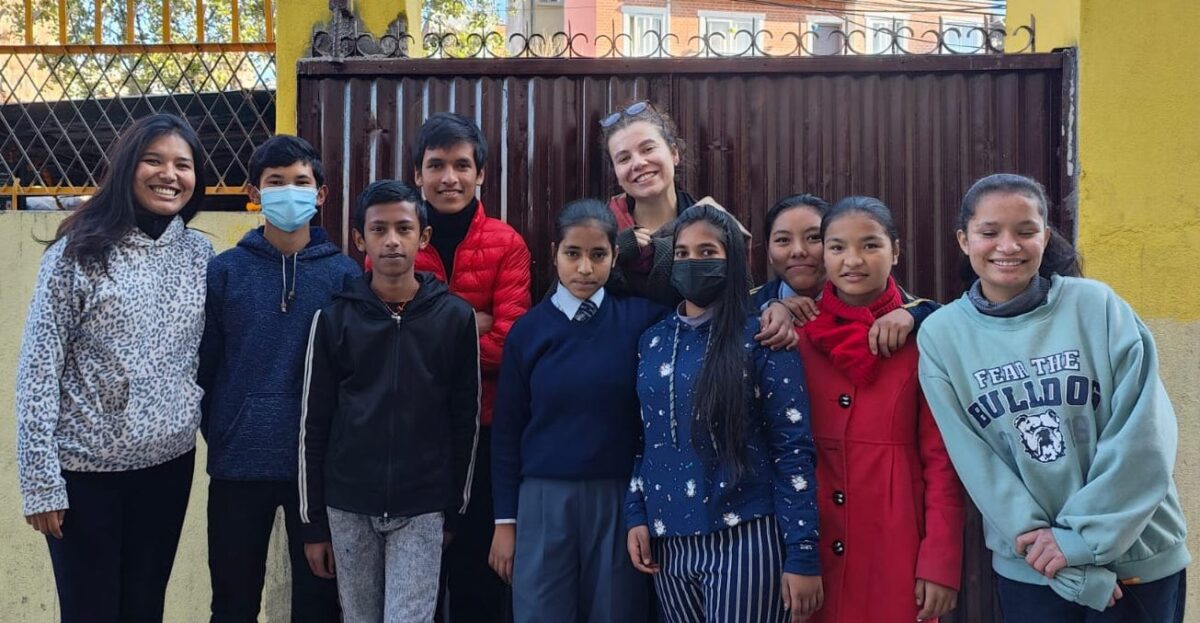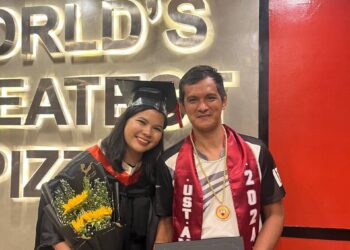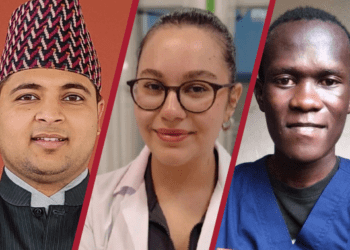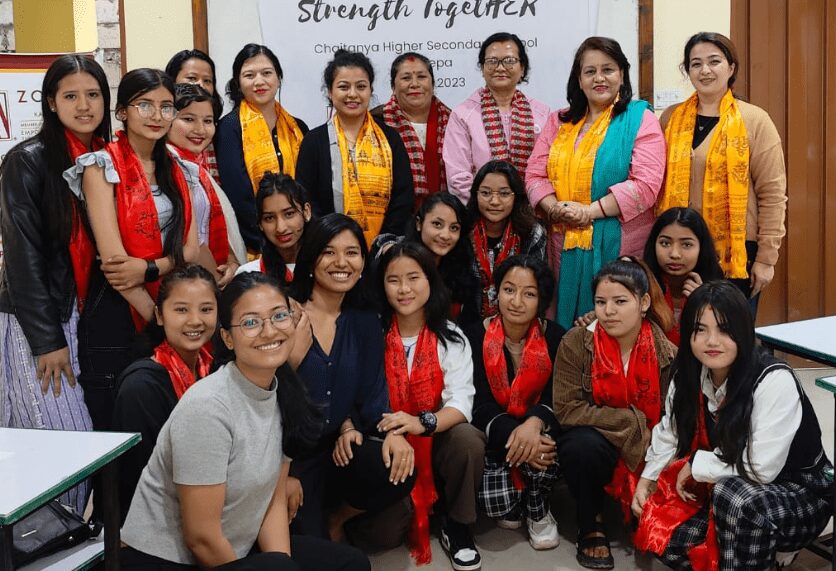
Based in Kathmandu, Nepal, two Aspire alumni work tirelessly to address the hardships faced by first-generation youth, young girls, and students hoping to learn English. Barsha Tamang and Anisha Prajapati are two of the three inspiring co-founders of Lokopakar, an organization dedicated to teaching Nepali youth the skills they need to further their personal and educational development.
This initiative began around 2015 when they were in high school. Tamang and Prajapati — driven by their passion for working with students — initiated communication development sessions and activities for children in rural communities. The need was certainly there; students in these areas lacked decent public education and could not compete with their private school counterparts who had better resources.
“I’ve seen the pain that a person goes through when there’s no education,” Tamang said.
Growing Up As First-Generation Students
Tamang and Prajapati’s own upbringing and experiences as first-generation college students played a large part in shaping this passion for working with children.
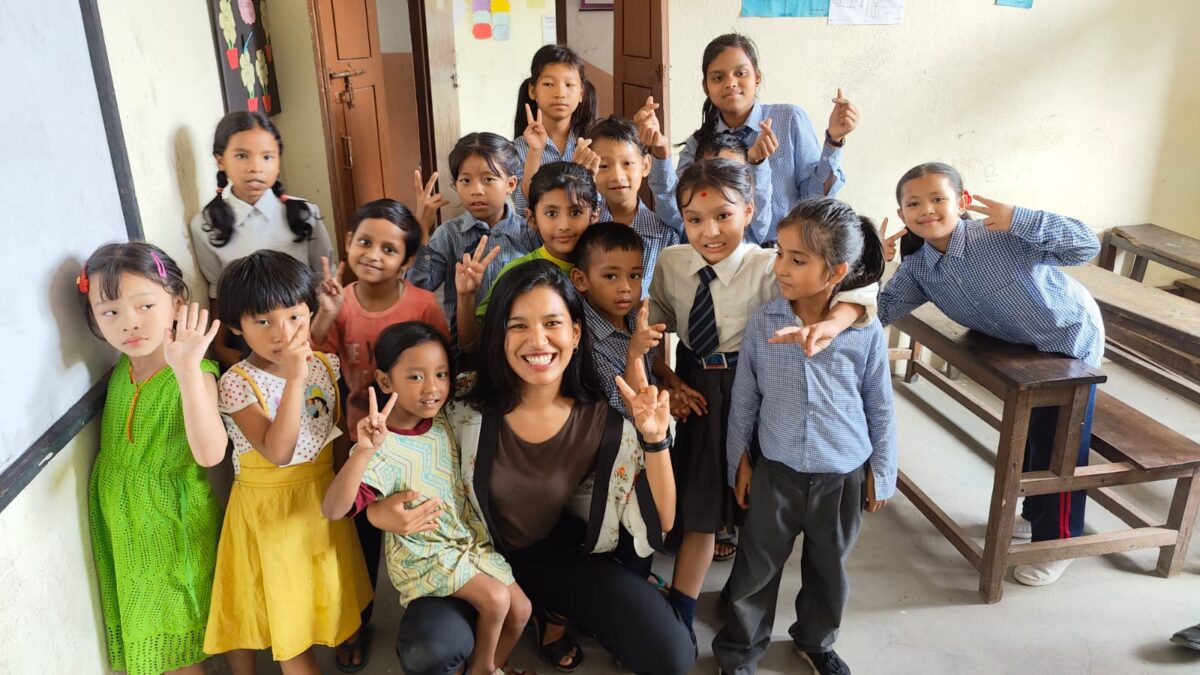
Tamang, born in rural Nepal, became the first person in her entire village of Taman to pursue a master’s degree. She faced criticism from her community as she pursued a different path than most women.
“They used to tell me, ‘I don’t think you’ll find a husband because [the people from] your community [don’t] study at all,’” Tamang recalled.
Despite this, Tamang — with encouragement from her mother — worked hard to break the mold by continuing with her education. New opportunities opened up as a result of her hard work and networking, and seeing her own success pushed her to inspire underserved children to strive for more.
“I really want to finish my education so I can be an example to other girls — especially from my community,” she said. “We should not be [characterized by harsh stereotypes].”
I had all the options open, but I never had any guidance [on what kind of career to pursue].
Prajapati grew up in the capital city of Nepal, Kathmandu. Like Tamang’s mother, her parents stressed the importance of education and pursuing her passions. Despite their encouragement, Prajapati soon discovered a problem shared by many first-generation college students.
“I had all the options open, but I never had any guidance [on what kind of career to pursue],” Prajapati said.
Luckily, her time spent working with children as a senior in high school sparked a passion for mentoring students. She grew determined to become the kind of guide for public school students that she herself lacked while growing up.
Developing Lokopakar
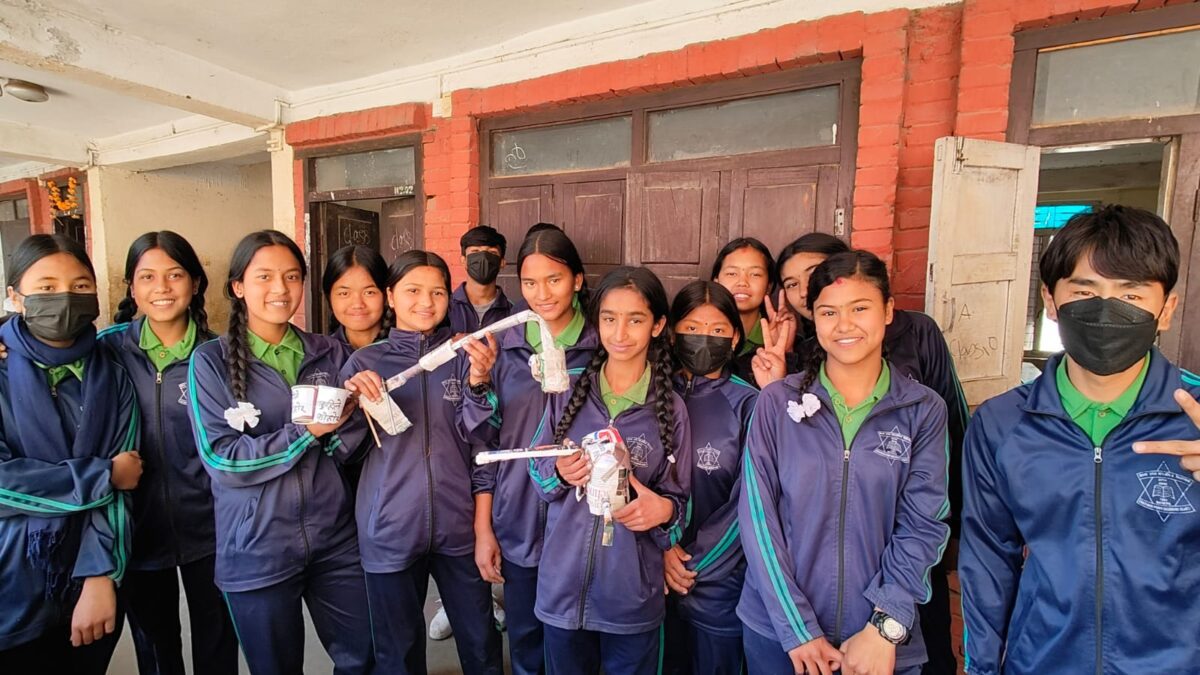
Lokopakar — which means “doing good for the people” — began with communication, critical thinking, and public speaking workshops with public school students. After a brief pause to pursue their undergraduate studies, these two Aspire alumni registered their organization and resumed facilitating soft skill development among children in rural areas.
During the COVID-19 pandemic, they had to shift to virtual programming and created Strength TogetHER, a program creating a safe space for girls to share their stories over Zoom. This program scaled to seven provinces in Nepal and to Nigeria – thanks to a connection with a fellow ALP alum.
Gaining a New Perspective
Tamang’s and Prajapati’s time in Aspire opened their eyes to the problems faced by first-generation students, and they were able to connect with others who shared their struggles. With this revelation, they applied for Aspire’s Community Action Award (CAA) with a new idea.
“I figured out the problems that I had faced during my childhood [were] not common problems,” Tamang explained. “[They were] first generation problems.”
“We thought [these problems were] normal for everyone [before] we joined Aspire,” Prajapati added.
Though they were not selected for the second round of CAA, they pursued their project and developed First Generation Nepal.
Supporting First-Generation Youth in Nepal
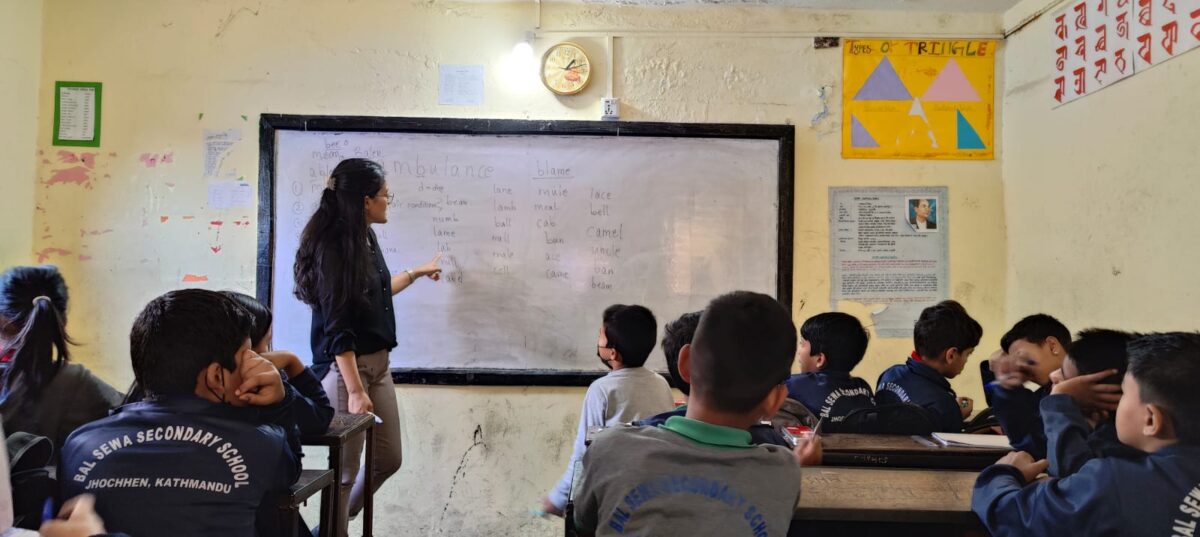
According to Tamang, almost 100% of Nepali students in public schools are first-generation students, and this project housed under Lokopakar aims to build a support system among them. Tamang and Prajapati hope that by sharing practical skills, teaching English through another initiative — Breaking the English Language Barrier — and providing these students with a network of first-generation peers and mentors, they can help in closing the education gap for children in underserved communities.
“Aspire has given us a head start,”Tamang said. [This is a] big achievement for first-generation students in Nepal, as we are the first organization working directly with them.”
Looking Toward a Bright Future
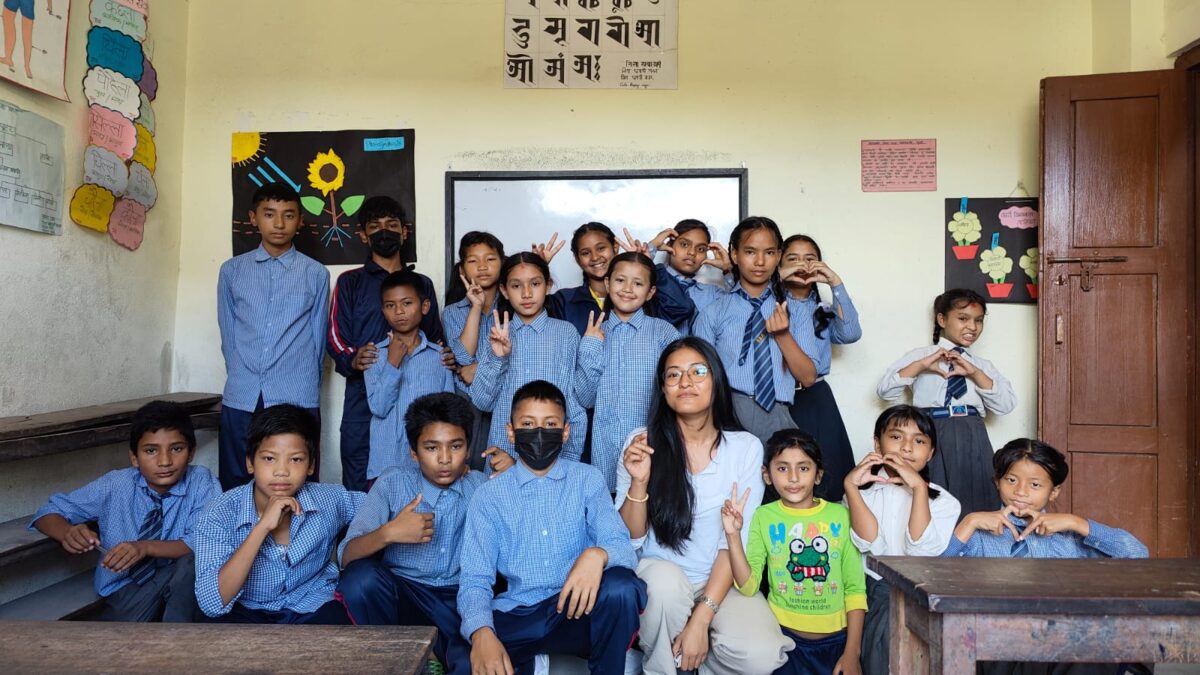
Having overcome their struggles in pursuit of a cause they believe in, Tamang and Prajapati are undeniable proof of the vast potential of young leaders. The pair observed the needs of Nepali youth and, drawing from their own experiences, worked to provide guidance, support, and mentorship — all benefits they wish they’d had while growing up.
Looking forward, Tamang and Prajapati wish to expand Lokopakar and its programs.
Aspire has given us a head start. [This is a] big achievement for first-generation students in Nepal.
“We have a dream of reaching all the public schools in Nepal, doing our sessions, [and] working with the students — [especially girls],” Tamang said.
“We want to create a [space] where all the students are confident enough to speak in English,” Prajapati added. “[We want to help them] communicate, learn, and [acquire] the resources to get a head start on their education and career despite being first-generation students.”
In addition to their shared goals for Lokopakar, Tamang hopes to earn her master’s in education within the next year, and is looking to acquire a phD in education beyond that. Prajapati also hopes to obtain a master’s in education on leadership in order to gain the skills needed to grow the organization even further.
